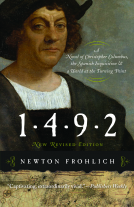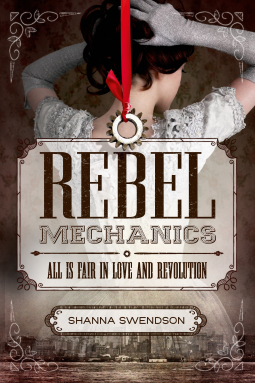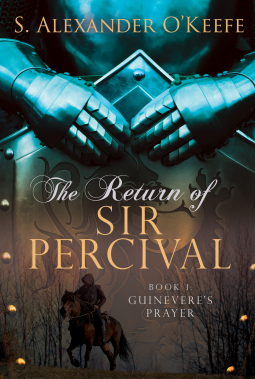Deborah J. Ross's Blog, page 103
November 25, 2016
OryCon 2016 Report
 Any report I make of OryCon (in Portland OR, on or near Veterans Day weekend) must be seen in highly personal context. For me, it’s never been just another convention, but part of other aspects of my life. I used to attend OryCon regularly. I’d gone to college and then graduate school in Portland and retained a fondness for the city. My best friend from college still lived there, and I’d stayed in close touch with her. So attending OryCon also meant a visit, usually after the con when decompression with long-time friendship, and maybe a long trail ride, were especially welcome. These visits became even more important when she was diagnosed with ovarian cancer. I made a number of trips to Portland to help her and her family through the rounds of chemo that led to a series of remissions. In the nearly five years that followed, our OryCon visits became even more precious. In fall 2013, she entered hospice, and again I was present to do whatever was necessary to support her and her family in that transition. She died in October, when the weather had already turned chill and overcast with the approach of winter. That year, attending OryCon was out of the question, nor could I bring myself to consider returning to Portland for some time. This year, however, I ventured north with my older daughter to a reunion at our alma mater, Reed College. That shifted my thinking enough so that when I received an invitation to be a guest panelist at OryCon, I happily accepted. Of course, the first thing to arrange was a visit with my friend’s surviving family. Two visits, actually; one before and one after the con. A family dinner, complete with home made lasagna (vegetarian and vegan versions) marked an auspicious welcome back to Portland.
Any report I make of OryCon (in Portland OR, on or near Veterans Day weekend) must be seen in highly personal context. For me, it’s never been just another convention, but part of other aspects of my life. I used to attend OryCon regularly. I’d gone to college and then graduate school in Portland and retained a fondness for the city. My best friend from college still lived there, and I’d stayed in close touch with her. So attending OryCon also meant a visit, usually after the con when decompression with long-time friendship, and maybe a long trail ride, were especially welcome. These visits became even more important when she was diagnosed with ovarian cancer. I made a number of trips to Portland to help her and her family through the rounds of chemo that led to a series of remissions. In the nearly five years that followed, our OryCon visits became even more precious. In fall 2013, she entered hospice, and again I was present to do whatever was necessary to support her and her family in that transition. She died in October, when the weather had already turned chill and overcast with the approach of winter. That year, attending OryCon was out of the question, nor could I bring myself to consider returning to Portland for some time. This year, however, I ventured north with my older daughter to a reunion at our alma mater, Reed College. That shifted my thinking enough so that when I received an invitation to be a guest panelist at OryCon, I happily accepted. Of course, the first thing to arrange was a visit with my friend’s surviving family. Two visits, actually; one before and one after the con. A family dinner, complete with home made lasagna (vegetarian and vegan versions) marked an auspicious welcome back to Portland.I won’t go into a recitation of all things travel and hotel. Needless to say, my usual disorientation upon encountering a new venue kicked into high gear, fueled by the vertical arrangement of the hotel (events were on 4 different floors, or was it 5 plus the green room on the 16th floor?) The OryConOps folks were as warm and welcoming as ever. I had a splendid roomie in Irene Radford, although we were both a bit too old to stay up all night talking.
My panels began Saturday morning with the topic “Fantasy vs. Science Fiction,” in which panelists and audience attempted to discern why anyone would think one better than the other when we all love them both. Conventional wisdom suggests that in science fiction, the laws of physics must be observed (with the notable exceptions of psi powers and faster-than-light travel); whereas in fantasy, magic introduces a fundamentally different system. The level of technology of the setting tends to put low-tech, medieval worlds into the fantasy camp and modern, futuristic, or space settings into science fiction. I threw out the idea that readers expect different experiences (fantasy – emotional, science fiction – intellectual, idea-driven) from the two genres, hoping it would provoke a juicy discussion. We all agreed that with the popularity of cross-overs, none of these distinctions holds true any longer.
Then, after running across the street for Chinese food with a friend, came Finding Diverse Voices and Characters in SF/F. The sad thing was that we had only one person of color on the panel, but we did our best to talk about how to write respectfully about people who are unlike us, and where to go to find stories by diverse authors.
From there, I careened over to Reaching Writers Who Don’t Know You Yet. Although the topic description mentioned strategies for SEO (Search Engine Optimization) – that is, making yourself visible to folks who Google you or are looking for the kind of fiction you write – most of the emphasis was on offering free ebooks (as through InstaFreebie) and other ways of building up mailing lists. That is, the focus was indie or self-published writers who must do all their own promotion. I am not convinced of the value of these strategies, but I defer to the romance writers who write 6 books a year, use these methods, and earn a good income. Since this is my blog and I get to hold forth however I want, I present Deborah’s Strategy for Acquiring Readers:
1. Write great stuff.
2. Say interesting things on panels and on your blog.
3. Be kind to fans.Dinner that night was a sort of mini-bar-con, since someone who clearly does not appreciate the rapacious appetites of fans declared the restaurant closed until 7:15 pm. I thought of snooping through evening panels or parties, but old age got the better of me, like Bilbo, and I oozed off to bed instead.
Sunday morning is usually SFWA meeting time, but I neglected to inform Programming of my unavailability, so I had a panel on Endings: Cuddling with the Reader. I love the idea of leaving chocolate on the pillow for my devoted fans, although sometimes a jolt to the solar plexus is just what the story needs. Although not all the panelists agreed with me, my takeaway is that the ending should fulfill the promise the author makes at the beginning of the book. A steamy romance calls for a very different emotional tone in the wrap-up than does a detective thriller or a fluffy fantasy or a gritty dystopic novel. I believe an ending does not have to be “happy” to be satisfying, but satisfying is what’s needed. At the end of The Lord of the Rings, Frodo is wounded in ways that can never heal while he remains in Middle Earth; hence “The Scouring of the Shire” sequence in the books (not the films) allow us to mend what we can and grieve what has been lost.
My last two events were a reading (most of “Sage Mountain” from Sword and Sorceress 31) and autographing. Much fun was had by all at both events. Then a wonderful, generous fan gave me a ride to Powell’s Beaverton for their Authorfest. This year, the event took place in a much smaller space with only 20 of us, but it had the feel of a mini-convention, with authors, fans, and people who just wandered in to see what all the fuss was about, all mingling and having a great time.
OryCon will return to Jantzen Beach next year (no more verticality); I have no doubt it will remain the warm, welcoming environment in which to share enthusiasm for books (and graphic novels and films and so forth). If you live nearby and have never been to a convention before, check it out. See you there!

Published on November 25, 2016 01:00
November 24, 2016
In Memoriam, Andre Pereira

Just learned that longtime Darkover fan André Pereira has died of cancer. Adelandeyo... Namarië... Go in grace, my friend.

Published on November 24, 2016 12:36
November 7, 2016
Anxiety, Curiosity, and Creativity
 Recently I wrote about “Election Anxiety Disorder,” characterized by – among other things – obsessively checking news sources, social media, polling results, election prediction sites, and the like. Our simian brains seem to be hardwired to zoom in on changes, even small ones, in our environments. Fast-changing visual media like news programs and advertisements rely on this response to attract and hold our attention. In the same way our ancestors might have scanned the horizon for the movement of herds of prey animals or signs of a stalking predator, we scan our information horizon for signs of threat (or reassurance). So it can be difficult to tear ourselves away from that screen or newspaper, particularly when our lives are in so many other ways attached to the flow of information. For many of us, this constant reactivation and connection with sources of perceived threat our anxiety. However, some people use information as a way of managing their anxiety.
Recently I wrote about “Election Anxiety Disorder,” characterized by – among other things – obsessively checking news sources, social media, polling results, election prediction sites, and the like. Our simian brains seem to be hardwired to zoom in on changes, even small ones, in our environments. Fast-changing visual media like news programs and advertisements rely on this response to attract and hold our attention. In the same way our ancestors might have scanned the horizon for the movement of herds of prey animals or signs of a stalking predator, we scan our information horizon for signs of threat (or reassurance). So it can be difficult to tear ourselves away from that screen or newspaper, particularly when our lives are in so many other ways attached to the flow of information. For many of us, this constant reactivation and connection with sources of perceived threat our anxiety. However, some people use information as a way of managing their anxiety. There are many styles of dealing with anxiety, from purely physical to purely intellectual, with pharmaceutical – legal or otherwise – thrown in there, too. I should modify that statement to say these are starting points. Deep, slow breathing and concomitant decreases in blood pressure, heart rate, adrenaline secretion, etc., also affects our thoughts. Talking ourselves through a stressful situation or changing how we think about ourselves or the problems we face also reduces the physiological symptoms of anxiety. No matter where we begin, we end up at the same place.
As I mentioned above, one way to manage anxiety is through information. If we can find out more about something that worries us, often it becomes less threatening. (Not always, of course.) Our fears can distort perceptions and amplify dangers, but information acts as an antidote. It also suggests logical, effective actions to deal with the problem, things that are more likely to be successful than just flying off the handle. Our minds reassure us of our ability to cope with the situation, and the resulting calm further increases our likelihood of success.
Obtaining information is not only anxiety-reducing but pleasurable. Who has not felt a burst of elation upon learning a new incredibly cool fact or mastering a new skill? As writers, we exercise our curiosity about all kinds of things. We joke about “The Joys of Research.” We create characters who are different from us and watch as their stories unfold. We dig out facts about places we have never visited or long-dead civilizations or galaxies visible only by telescope, and then flesh these places out with our imaginations.
Inserting too much research into a story results in the dreaded “infodump.” Too little results in a setting that is flat, bland, generic, or otherwise inert. World-building and character creation interact with “storyness” and plot; when writing is going well, each feeds the other. Information generates ideas of where the story might go, and the story tells us what we need to find out more about.
Play and curiosity are basic human qualities. Both shift our lives from fear of the unknown to active engagement. Many writers not only survive but grow through personal crises through curiosity and the resulting information. When we combine what we know, what we learn, and what we make up, we are in better control of our emotional reactions and our situations. These processes are not unique to writers; they are available to everyone. As writers, we practice these skills on a regular basis. Our work can help us, certainly, but it can also provide a way to insight, safety, and hope for our readers.

Published on November 07, 2016 01:00
November 2, 2016
Supporting A New Writer: Full Circle, Starting Over
This blog series began when I received a letter from a long-time fan. It spoke deeply to me, and
 rather than answer it alone, I asked some of my writer friends to join in a series of round table blogs on the issues raised. Below is another heart-felt letter from another writer with her own struggles.
rather than answer it alone, I asked some of my writer friends to join in a series of round table blogs on the issues raised. Below is another heart-felt letter from another writer with her own struggles.
I've been trying to reconnect with writing friends after a hiatus from the creative life. I've spent the past year or so taking care of my mom and working to pay the bills. Mom passed away in October. When your last parent passes away, it changes you in many ways. That foundation you always relied on -- even as an adult -- is gone for good. Whether you're ready or not, you are truly on your own in the world and must somehow carry on without their nurturing presence. One of the most difficult aspects of my mother's final days was the fact that she had so many regrets about life. She once had goals and dreams, but left them behind out of fear and a belief that these dreams were just not possible. I'm 54 years old. More than half of my life is over. Writing has been a dream/goal of mine since childhood. My mom was the only one who believed in me. I don't want to leave this world regretting the fact that I never pursued this dream to the fullest. To be honest, my writing "career" never took off. I let fear, doubt and the negativity of others keep me from my dreams. I want so much to be brave, to take risks with my creative life. I truly wish for a group of fellow writers who are willing to give me the encouragement and support I need to write with my heart and soul, to grow as a writer and a human being. And I want to be a support for others as well.
How do I get back into the writing life after leaving it on the back burner for so long?
Denise B. Tanaka: Do I still have what it takes?
Once I heard an anecdote about someone tearing down a spider's web every day. The spider would come back to the same spot to recreate the web, and the person tore it down again and again. After a while, the spider rebuilt the web less perfectly, with gaps and irregularities, until finally the spider stopped rebuilding the web altogether.
As a writer, I have put my manuscripts through the meat grinder of critique groups and workshops at conventions. For a long time, I welcomed harsh comments because I believed it was necessary to develop a thick skin. I used to invite lengthy brainstorming sessions and I boldly gutted my manuscripts in rewrites. I endured the pounding because I assumed it would make my writing better.
For years, I was starry-eyed optimistic about getting published. Surely all the anguish of workshops and critique groups would pay off, right? I studied all the advice of how to write sparkling query letters. Before there were email submissions, I was a frequent visitor at the post office. And I stacked up piles of rejections. Small press. Big 5 houses. You name it, I've been rejected by it.
The meritocracy myth consumed me. I wrongly believed that if my writing was “good” that a publisher would snatch it up from the slush pile. I wrongly believed that all these rejection slips meant that my writing was “bad” or that I had no talent, that I did not deserve to be one of the chosen few. Disheartened but not entirely discouraged, I kept writing more and more manuscripts in my original universe. I told myself that if one book didn't sell surely another character's adventure could. I kept workshopping and writing and rewriting in a mad frenzy.
Then came the day when I got suckered by a predatory vanity press. Briefly I felt the euphoria that, at last, someone wanted to publish me! Until I learned there was a price to pay. I fought to rescue my manuscript from their clutches and managed to come out intact. But that unhappy experience wiped the glittery stars from my eyes. I glimpsed how marketing people at the vanity press and at big publishers alike view books as a product, and how they viewed authors as a marketable commodity as well. I started paying attention to marketing/promotion advice. I learned a harsh truth—that I wish I knew years ago—that publishers reject manuscripts for reasons other than the quality of the writing. I viewed an online seminar where a former slush pile reader for Penguin Books talked about her sadness at rejecting beautifully written books solely because the author did not have a social media platform. All the years I spent worrying about my adverbs and passive voice, I should have concentrated on increasing my number of Twitter followers?
Now I am at a crossroads. With a new perspective on today's publishing landscape, I want to salvage the half a dozen novels that are gathering dust on my hard drive. I want to explore self-publishing as a means regain my sense of agency in achieving my lifelong goal of holding a published book in my hands.
My question is whether or not my writing sense has been battered by the years. Did I allow workshops and critique groups to chew my stories to a pulp when they may have been all right to begin with? Did I throw the baby out with the bathwater in my compulsion to rewrite, in the hopes of overcoming a slush reader's rejection? Am I discouraged? Am I jaded? Am I ruined? Is it too late?

 rather than answer it alone, I asked some of my writer friends to join in a series of round table blogs on the issues raised. Below is another heart-felt letter from another writer with her own struggles.
rather than answer it alone, I asked some of my writer friends to join in a series of round table blogs on the issues raised. Below is another heart-felt letter from another writer with her own struggles.I've been trying to reconnect with writing friends after a hiatus from the creative life. I've spent the past year or so taking care of my mom and working to pay the bills. Mom passed away in October. When your last parent passes away, it changes you in many ways. That foundation you always relied on -- even as an adult -- is gone for good. Whether you're ready or not, you are truly on your own in the world and must somehow carry on without their nurturing presence. One of the most difficult aspects of my mother's final days was the fact that she had so many regrets about life. She once had goals and dreams, but left them behind out of fear and a belief that these dreams were just not possible. I'm 54 years old. More than half of my life is over. Writing has been a dream/goal of mine since childhood. My mom was the only one who believed in me. I don't want to leave this world regretting the fact that I never pursued this dream to the fullest. To be honest, my writing "career" never took off. I let fear, doubt and the negativity of others keep me from my dreams. I want so much to be brave, to take risks with my creative life. I truly wish for a group of fellow writers who are willing to give me the encouragement and support I need to write with my heart and soul, to grow as a writer and a human being. And I want to be a support for others as well.
How do I get back into the writing life after leaving it on the back burner for so long?
Denise B. Tanaka: Do I still have what it takes?
Once I heard an anecdote about someone tearing down a spider's web every day. The spider would come back to the same spot to recreate the web, and the person tore it down again and again. After a while, the spider rebuilt the web less perfectly, with gaps and irregularities, until finally the spider stopped rebuilding the web altogether.
As a writer, I have put my manuscripts through the meat grinder of critique groups and workshops at conventions. For a long time, I welcomed harsh comments because I believed it was necessary to develop a thick skin. I used to invite lengthy brainstorming sessions and I boldly gutted my manuscripts in rewrites. I endured the pounding because I assumed it would make my writing better.
For years, I was starry-eyed optimistic about getting published. Surely all the anguish of workshops and critique groups would pay off, right? I studied all the advice of how to write sparkling query letters. Before there were email submissions, I was a frequent visitor at the post office. And I stacked up piles of rejections. Small press. Big 5 houses. You name it, I've been rejected by it.
The meritocracy myth consumed me. I wrongly believed that if my writing was “good” that a publisher would snatch it up from the slush pile. I wrongly believed that all these rejection slips meant that my writing was “bad” or that I had no talent, that I did not deserve to be one of the chosen few. Disheartened but not entirely discouraged, I kept writing more and more manuscripts in my original universe. I told myself that if one book didn't sell surely another character's adventure could. I kept workshopping and writing and rewriting in a mad frenzy.
Then came the day when I got suckered by a predatory vanity press. Briefly I felt the euphoria that, at last, someone wanted to publish me! Until I learned there was a price to pay. I fought to rescue my manuscript from their clutches and managed to come out intact. But that unhappy experience wiped the glittery stars from my eyes. I glimpsed how marketing people at the vanity press and at big publishers alike view books as a product, and how they viewed authors as a marketable commodity as well. I started paying attention to marketing/promotion advice. I learned a harsh truth—that I wish I knew years ago—that publishers reject manuscripts for reasons other than the quality of the writing. I viewed an online seminar where a former slush pile reader for Penguin Books talked about her sadness at rejecting beautifully written books solely because the author did not have a social media platform. All the years I spent worrying about my adverbs and passive voice, I should have concentrated on increasing my number of Twitter followers?
Now I am at a crossroads. With a new perspective on today's publishing landscape, I want to salvage the half a dozen novels that are gathering dust on my hard drive. I want to explore self-publishing as a means regain my sense of agency in achieving my lifelong goal of holding a published book in my hands.
My question is whether or not my writing sense has been battered by the years. Did I allow workshops and critique groups to chew my stories to a pulp when they may have been all right to begin with? Did I throw the baby out with the bathwater in my compulsion to rewrite, in the hopes of overcoming a slush reader's rejection? Am I discouraged? Am I jaded? Am I ruined? Is it too late?
Denise B. Tanaka is a lifelong writer of magical beings and fantastic worlds. Her short stories have appeared in SQ Mag, New Realm, Once Upon A World, and her latest story will appear soon in the AlternaTEAS anthology edited by Elizabeth Gilligan. By day, she works as a paralegal in the challenging field of immigration law. In her spare time, she creates historical and fantasy-based costumes. Her live spin transformation Diana Prince-to-Wonder Woman costume won Honorable Mention (Journeyman) in the masquerade at Sasquan the 73rd World Science Fiction Convention. Find her at www.drobarge.co/ and on Twitter as @DeniseBTanaka

Published on November 02, 2016 01:00
November 1, 2016
I'll be at OryCon in Portland Oregon this year, Nov. 18-2...
 I'll be at OryCon in Portland Oregon this year, Nov. 18-20. This year's Guests of Honor include:Writer: David Weber
I'll be at OryCon in Portland Oregon this year, Nov. 18-20. This year's Guests of Honor include:Writer: David WeberEditor: Artist: David Mattingly
Music: Mark Osier
In addition, we'll have Special Musical Guest Leslie Hudson
Here is my schedule. If you're attending, please come by and say hello (especially for my reading and autographing sessions!)
Fantasy vs. Science FictionSalon C (LL1)Sat Nov 19 11:00am - 12:00pm Ann Gimpel, David Dvorkin, Deborah Ross, Peter Jones, Sharon Roest Finding Diverse Voices & Characters in SF/FSalon C (LL1)Sat Nov 19 2:00pm - 3:00pm Caroline M. Yoachim, Cat Rambo, David Levine, Deborah Ross, Jeffrey Cook Reaching Readers Who Don't Know You YetMeadowlark (3)Sat Nov 19 4:00pm - 5:00pm Anthony Pryor, Blythe Ayne, Deborah Ross, Jennifer Brozek, Josh Boykin Endings: Cuddling with the ReaderDouglas Fir (3)Sun Nov 20 10:00am - 11:00am Dean Wells, Deborah Ross, Mary Rosenblum, Mike Shepherd, Sharon Roest Deborah J. Ross Reading Hawthorne (2)Sun Nov 20 12:30pm - 1:00pm Deborah Ross Autograph Session 7Autograph Area (LL1)Sun Nov 20 1:00pm - 2:00pm Blythe Ayne, Curtis Chen, David Dvorkin, Deborah Ross, Joyce Reynolds-Ward

Published on November 01, 2016 01:00
October 31, 2016
Short Book Reviews: We've Come a Long Way Since 1492
 1492: A Novel of Christopher Columbus, the Spanish Inquisition, and a World at the Turning Point,by Newton Frohlich (Blue Bird Press, October 2016) This novelization of the events leading up to the “discovery” of the Americas was originally published in 1990. Alas, the years have not worn gracefully on the work. From the beginning, I found the depiction of the Muslim world stereotyped. Works such as Amin Maalouf’s The Crusades Through Arab Eyes (1984) and Carole Hillenbrand’s The Crusades: Islamic Perspectives (2006) portray another picture. Even setting aside the preconceptions of nearly two decades ago, I found the portrayals of the various historical personages emotionally distant. To anyone unfamiliar with the time period, the connections between the Inquisition, the political ambitions of Queen Isabella, and the increasingly desperate need of the Jews for a safe haven, will provide thoughtful insights. However, it pales compared to the lively, vivid Jewish Pirates of the Caribbean, by Edward Kritzler (2008).
1492: A Novel of Christopher Columbus, the Spanish Inquisition, and a World at the Turning Point,by Newton Frohlich (Blue Bird Press, October 2016) This novelization of the events leading up to the “discovery” of the Americas was originally published in 1990. Alas, the years have not worn gracefully on the work. From the beginning, I found the depiction of the Muslim world stereotyped. Works such as Amin Maalouf’s The Crusades Through Arab Eyes (1984) and Carole Hillenbrand’s The Crusades: Islamic Perspectives (2006) portray another picture. Even setting aside the preconceptions of nearly two decades ago, I found the portrayals of the various historical personages emotionally distant. To anyone unfamiliar with the time period, the connections between the Inquisition, the political ambitions of Queen Isabella, and the increasingly desperate need of the Jews for a safe haven, will provide thoughtful insights. However, it pales compared to the lively, vivid Jewish Pirates of the Caribbean, by Edward Kritzler (2008).
Published on October 31, 2016 01:00
October 28, 2016
Election Anxiety Disorder and What To Do About It
 Like just about everyone I know, I have been feeling anxious about this election. I say "just about" because there might be some acquaintance who is blissfully uncaring about the issues and candidates. So for the rest of us, this season has turned in to a series of conversations that always end up on the topic, augmented by repeated and frequent checking on news (and polls and election predictions), and, most of all, anxiety about what might happen if the other candidate wins. I've dubbed this toxic combination of worry and hypervigilance "Election Anxiety Disorder." (Although Electoral Anxiety Syndrome works, too.)
Like just about everyone I know, I have been feeling anxious about this election. I say "just about" because there might be some acquaintance who is blissfully uncaring about the issues and candidates. So for the rest of us, this season has turned in to a series of conversations that always end up on the topic, augmented by repeated and frequent checking on news (and polls and election predictions), and, most of all, anxiety about what might happen if the other candidate wins. I've dubbed this toxic combination of worry and hypervigilance "Election Anxiety Disorder." (Although Electoral Anxiety Syndrome works, too.)This is the most fear-driven campaign I can remember, and the first presidential election I remember was Eisenhower versus Stevenson, so that's quite a few. Each side holds up emotionally manipulative predictions of doom, gloom, global thermonuclear destruction, moral deterioration, and general Bad Things Happening as a way of galvanizing their followers into action and swaying the opinions of those very few remaining undecided voters. And it's happening on both sides, although the specific details of the threats are different.
Chronic anxiety takes its toll in physical as well as psychological unwellness. Sleep, work, relationships, all aspects of our lives can be impacted. We may lose or gain weight, depending on which we do not need to do. We spend more and more time glued to the television or computer. Eyestrain, backaches, headaches, stomach pain, obsessive thoughts, irritability...the list goes on of the ways our bodies and minds break down under stress. Recognizing what's going on is the first step towards better managing this stress.
Laughing at it -- and ourselves -- including giving the whole mess a silly name, goes a long way.
One of the obvious ways to help ourselves is to limit the amount of exposure to news stories (and polls, interviews, social media, and the like). This is much easier said than done. Following every tiny change in information has an addictive quality. Our brains become alerted by changes in our environment, which has obvious evolutionary advantages. Fast-changing visual media like news programs and advertisements rely on this response to attract and hold our attention. In the same way our ancestors might have scanned the horizon for any change in the movement of herds of prey animals or signs of a stalking predator, we scan our information horizon for signs of threat (or reassurance, which can evaporate just as quickly as a lion can burst out of the tall grass). So it can be difficult to tear ourselves away from that screen or newspaper, particularly when our lives are in so many other ways attached to the flow of information. For many of us, this constant reactivation and connection with sources of perceived threat fuels-- nay, turbocharges -- our anxiety. However, some people use information as a way of managing their anxiety. One size of suggestion does not fit all.
Getting enough exercise can be helpful. For some of us, cardiovascular activities that get our hearts pounding drain the constant levels of adrenalin from our bodies. For others, meditative practices like yoga or tai chi can restore calm. Most of us sleep better when we have had enough exercise. These fall under the general rubric of taking good care of ourselves. Other measures include eating well, limiting stimulants, drinking in moderation if at all, and so forth.
Most of us are not affected by Election Anxiety Disorder in isolation. We live in community, whether face-to-face or online. We talk about what we have heard and read, especially the things that trigger our fears or are otherwise sensational.Sometimes all this does is give us a chance to vent at the cost of escalating our tension. ("Can you believe what Candidate has done? Did you see the story revealing Terrible Secret From Candidate's Past?") Instead of egging each other on -- or, worse yet, turning the conversation into a contest of who has the juiciest scandal -- we can use these interactions to air our own feelings, defuse our anxiety, and brainstorm solutions.
Just about everyone I know responds well to the change in emphasis. "I'm so ready for this election to be over!" echoes on both sides of the political spectrum. Even if we're not willing to give up our attachment to the outcome, it is a relief to take an honest look at how wearying the whole process is.
Here are some other strategies:
Humor can be a godsend. The stakes may be serious, but we don't have to take ourselves seriously all the time. We admire public figures who are able to take it as well as dish it out at celebrity roasts. Why not find ways to laugh at our own foibles?
Likewise, singing, making music, playing with our children or pets, all get us breathing and laughing, and remind us of our capacity for joy.
Remembering what we can and cannot control. Remember the Serenity Prayer, that talks about accepting what we cannot change? The tricky part is when actions you can take (voting, phone banking, Tweeting insanely) give you the illusion of control, and perhaps there is some truth within that illusion. Not that voting and campaigning are bad things in themselves, but ongoing election activities can become problematic when you buy into the notion that the more you do, the calmer you will be. And that only you can make a difference. Everyone's mileage varies. For some, taking those actions like spending days at a candidate's phone bank, gives a sense of satisfaction, having "done my part," and the ability to then set aside the crazier aspects of the election. For others, increasing the investment of time and energy only escalates the tension and worry. The trick is to pay attention to whether it's good for you.
Then again, you can always give in to the Dark Side and stock up on voodoo dolls and stick pins...

Published on October 28, 2016 01:00
October 26, 2016
Short Book Reviews: Steampunk Victorian Revolution
Rebel Mechanics, by Shanna Swendson (Macmillan Children's Publishing Group) Steampunk and
 alternate American history, spies and skullduggery and steam engines, oh my!
alternate American history, spies and skullduggery and steam engines, oh my!
From the beginning, I was captivated by this tale of an 1888 America that never freed itself from Britain, a world ruled by aristocratic “magister” magic-users, Masked Bandits and airships, and an intrepid heroine. With the focus on plot and character, perfect for young adult audiences, the world-building is handled with subtlety. Verity Newton arrives in New York City to take up a position as a governess, only to become entangled with the Rebel Mechanics, a fellowship of engineers committed to freeing themselves from the tyranny of the magisters through the creation of steam engine powered devices that anyone can operate, regardless of magical talent. (A particular charming twist was the role of the novel Jane Eyre, and its reflections on the role of governesses!) I hope this will be the beginning of a series of Verity’s adventures and the eventual liberation of the American colonies. Fans of Gail Carriger will particularly enjoy this book.

 alternate American history, spies and skullduggery and steam engines, oh my!
alternate American history, spies and skullduggery and steam engines, oh my!From the beginning, I was captivated by this tale of an 1888 America that never freed itself from Britain, a world ruled by aristocratic “magister” magic-users, Masked Bandits and airships, and an intrepid heroine. With the focus on plot and character, perfect for young adult audiences, the world-building is handled with subtlety. Verity Newton arrives in New York City to take up a position as a governess, only to become entangled with the Rebel Mechanics, a fellowship of engineers committed to freeing themselves from the tyranny of the magisters through the creation of steam engine powered devices that anyone can operate, regardless of magical talent. (A particular charming twist was the role of the novel Jane Eyre, and its reflections on the role of governesses!) I hope this will be the beginning of a series of Verity’s adventures and the eventual liberation of the American colonies. Fans of Gail Carriger will particularly enjoy this book.

Published on October 26, 2016 01:00
October 24, 2016
Short Book Reviews: Nothing New in Camelot
 The Return of Sir Percival (Book 1, Guinevere's Prayer), by S. Alexander O'Keefe (Greenleaf, September 2016).
The Return of Sir Percival (Book 1, Guinevere's Prayer), by S. Alexander O'Keefe (Greenleaf, September 2016). A year after the death of Arthur, his kingdom lies under the brutal yoke of a Viking invader. Guinevere languishes in a convent, while setting up a secret spy network to keep tabs on the rest of the kingdom. Sir Percival, who had been dispatched to the Holy Land in search of the Grail, returns along with his Moorish companion. Morgana schemes to at last assassinate Merlin, while playing a dangerous game of alliance with the Vikings.
Although smoothly written, this sequel to the well-known story of King Arthur and his Knights of the Round Table came across as flat and derivative. None of these characters struck me as remarkably original; they were all pretty much what I expected, although the many historical inaccuracies gave the narrative a Hollywood flavor (for example, Morgana is supposed to be a Roman assassin, but neither speaks nor behaves in a Roman fashion). The Moor, as charming as he is, reads as if he has just stepped out of Kevin Costner’s “Robin Hood: Prince of Thieves,” and that character was copied from the Saracen in the A & E “Robin of Sherwood” series.
Readers hungry for everything Arthurian may enjoy this book, but anyone looking for a fresh take on the legends will likely be as disappointed as I was.

Published on October 24, 2016 01:00
October 21, 2016
Supporting a New Writer 7: Flexibility
 "Moving ahead, this is a good time to talk about where to connect with other writers, how to use social media, the benefits/drawbacks of face-to-face, what to look for in a group, workshops -- which ones, pitfalls, etc. And how to use technology like the internet and digital publishing (and why you shouldn't). Any of these spark ideas?"
"Moving ahead, this is a good time to talk about where to connect with other writers, how to use social media, the benefits/drawbacks of face-to-face, what to look for in a group, workshops -- which ones, pitfalls, etc. And how to use technology like the internet and digital publishing (and why you shouldn't). Any of these spark ideas?"Barb Caffrey: Today I'd like to talk about social media. I've known some writers who've made great strides in their readerships, using it -- but what I use it for, mostly, is to get to know other fans and writers. I've been able to gain encouragement, support, and appreciation through the use of Twitter and Facebook (I don't use Instagram or Pinterest, but I've heard both of those also are quite useful; find your own platform, and use it).
Most of the writers I know on Facebook, for example, talk about their works-in-progress, or sometimes about the struggles they're having with their works-in-progress. This lets me know that I'm not alone, and gives me the option to talk to them, see what they're doing and how they're doing it, and give them the support they've given me...an unending circle, if you will.
While I stand behind my previous recommendation of the Forward Motion Writers Group (fmwriters.com), I urge you to try the various social media platforms, and see if one -- or more -- may work for you.
Now, as far as how to find other writers locally, in whatever area you live in? I know where I live -- Racine, Wisconsin -- we have a local writers' group that meets every Thursday night in various places. I've only been there once or twice, but I appreciate knowing this group exists; I get their e-mails, and have written back and forth a few times to the various group organizers. (This group, by the way, is absolutely, positively free. Just like Forward Motion is online, except with real-time communication.)
There are a few other ways, mind. If you live near a university (or college), you might see if there's a group meeting there. Or there may be writers doing events at a local book store; going there to talk with the writer (or writers) in question may help you meet someone with similar interests, and perhaps lead to a writerly friendship down the line.
But the main thing to know is this: We all start off as neophytes. And the only way to get any better is to keep trying, keep writing, keep creating, and dare to be the creative person you were born to be.
I hope that helps.
Barb Caffrey has written three novels, An Elfy On The Loose (2014), A Little Elfy in Big Trouble (2015), and Changing Faces (forthcoming), and is the co-writer of the Adventures of Joey Maverickseries (with late husband Michael B. Caffrey) Previous stories and poems have appeared in Stars Of Darkover, First Contact Café, How Beer Saved The World, Bearing North, and Bedlam's Edge (with Michael B. Caffrey).
Doranna Durgin: I admit, the scope of this question was a little daunting. How many of us have really figured out the answer to all these questions on our own? Not me!
But I have an approach to figuring them out, which is maybe the next best thing. Actually, it’s going to sound too simple: Figure out where you want to go. Figure out what you need to get there. Choose to do those things.
Ha ha ha ha!
Okay, so, for instance: there are many social networking platforms. What do you want yours to accomplish? How many platforms are you comfortable juggling? What are you comfortable with in terms of user experience and investment? With which demographic do you want to connect? What devices do you have on hand and what do they do best?
Ask yourself ALL the questions! You may still have to do some eenie-meenie, but questions should winnow things out so it’s not all just one big overwhelming mass.Also, there are many opportunities for connecting with others of a writerly bent. Do you want something local, or online? What are your goals for connecting—are they social, or are they educational? Can they be met by writers of any experience level, or only those well along their career path? Can they be met by gathering as a reader, with readers?
What are the downsides to any of those choices?
The thing is, sometimes we don’t know.
Social media platforms change. The software around engaging with them changes.
Writers’ groups wax and wane with the participants’ real life obligations and their evolving writing paths. The value of our choices (to us) changes. This can be hard to acknowledge once one has invested time, energy, and emotion into a situation—I for one am particularly guilty of lingering when I should move on—but it’s important to perceive when a thing that should be supporting your writing is actually taking from it.
So Part Two of the simple approach is this: Maintain reality checks to adjust outreach choices as your experience grows.
Our initial choices don’t need to be perfect—there’s no way that all of them are, no matter how thoughtfully we proceed, so the need to adjust a decision isn’t a fail. In fact, it might well be a nice indication of progress and growth. Cool!
So Part Three of the simple approach is a reminder that decisions made/actions taken count as moving forward even when they aren’t perfect. Endless sit and spin…well, that’s just sitting and spinning.
So figure out your personal goals—your goals, not what everyone says should be your goals or what they’ve all chosen as goals--and go for what meets them. And then pat yourself on the back.
(Also, chocolate.)
Doranna Durgin is an award-winning (Compton Crook--best first SF/F/H of the year) whose quirky spirit has led to an extensive and eclectic publishing journey across genres, across publishers, and across publishing lines. Beyond that, she hangs around outside her Southwest mountain home with horse and highly accomplished competition dogs. She doesn't believe in mastering the beast within, but in channeling its power. For good or bad has yet to be decided...

Published on October 21, 2016 01:00



